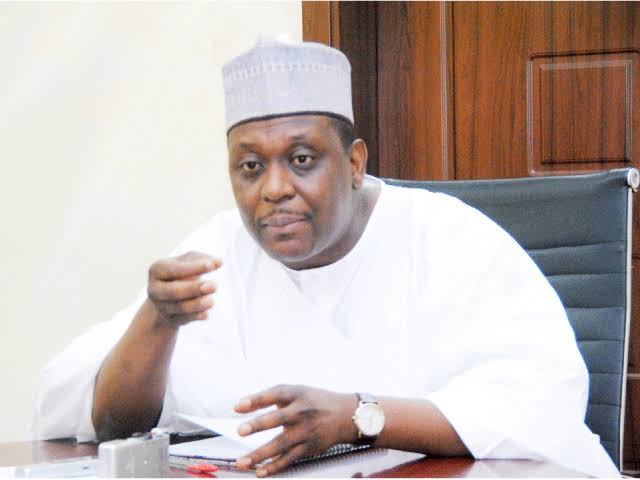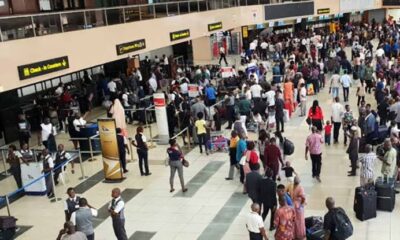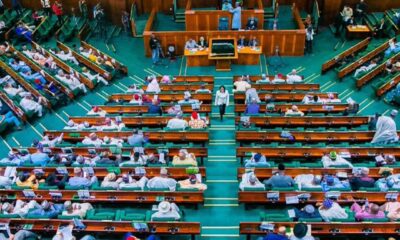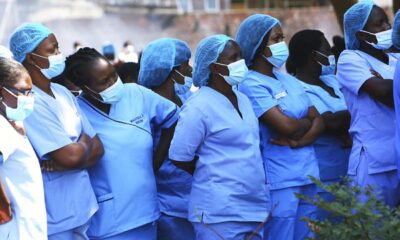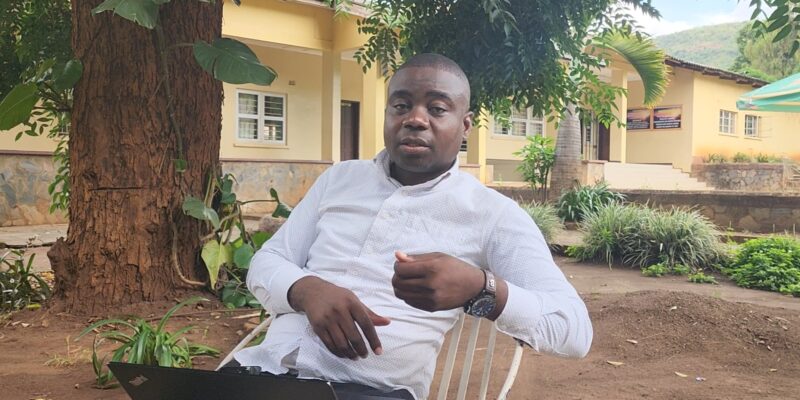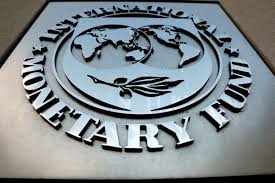Nigeria’s Coordinating Minister of Health and Social Welfare, Prof Ali Pate, has confirmed that no fewer than 16,000 medical doctors left the country to foreign lands in search of greener pastures in the last five years.
The minister, who disclosed this during a guest appearance on a television programme on Sunday, said the brain drain phenomenon, popularly known as ‘Japa Syndrome’, had robbed Nigeria of its best hands in the health sector, as other health professionals had taken the same route by fleeing the country to foreign countries.
Pate who lamented that Nigeria has seen a generation of young doctors, health workers, tech entrepreneurs and a number of professionals abandoned the for greener pasture abroad, however, assured that the government was taking measures to reverse the trend.
The Minister decried that presently, only 55,000 licensed doctors are in the country to attend to the growing population of patients following the exodus of health professionals to hospitals and health facilities abroad.
“In the last five years, the country lost about 15,000 to 16,000 doctors to the Japa syndrome while about 17,000 had been transferred,” he said.
“There are about 300,000 health professionals working in Nigeria today in all cadres. I am talking about doctors, nurses, midwives, pharmacists, laboratory scientists and others. We did an assessment and discovered we have 85,000 to 90,000 registered Nigerian doctors.
“Not all of them are in the country. Some are in the Diaspora, especially in the US and UK. But there are 55,000 licensed doctors in the country.”
“The issue overall, in terms of health professionals, is that they are not enough. They are insufficient in terms of the skills mix. Can you believe most of the high skilled professional doctors are in Lagos, Abuja and a few urban centres? There is a huge distribution issue.
“The population of doctor overall is about 7,600 doctors in Lagos and 4,700 or thereabout in Abuja. The doctor to population ratio in Abuja is 14.7 per 10,000 population. These are numbers that you can verify. In Lagos, it is about 4.6, even though the average is 2.2 by 10,000.
“There are huge distributional issues and they are, of course, the opportunities even for some of those who have been trained to get into the market.
“So you have to look at it from a perspective that is holistic. Not only doctors but other cadres that are important in the delivery of health care. For doctors, we have been losing many that have been trained.”
“Now to the Japa you talked about, it is not only limited to Nigeria. It is a global phenomenon. Other countries don’t have enough.
“They are asking to take more. It is not only in Nigeria. It is happening in India, Philippines and other parts of Africa. In the last five years, we have lost about 15,000 to 16,000 and about 17,000 had been transferred. We’re barely managing.
“That’s why expanding their training will become logical. The same thing with nurses and midwives; they are also leaving. That’s why expanding the training is important to ensure those still around are well trained.
“We are beginning to take steps to expand the training and work environment, taking some steps to encourage salaries and incomes commission to do certain things that will encourage them to feel at home.
“But even the issue of working hours that has come about recently, particularly for the junior doctors, is being addressed.
“We are beginning to take steps to expand the training and work environment, taking some steps to encourage salaries and incomes commission to do certain things that will encourage them to feel at home.
“But even the issue of working hours that has come about recently, particularly for the junior doctors, is being addressed.
“This is because when some of their colleagues leave and they remain at home, the burden has not reduced.
“And so they work extremely hard. We’ve listened to that. We are looking at how we can alleviate that and with the Medical and Dental Council of Nigeria, we are looking at how, within the code of ethics and the guidelines for the physician, to provide some safeguards to ensure they are treated as valuable assets so they are not burnt out,” the Minister said.

 Musings From Abroad2 days ago
Musings From Abroad2 days ago
 Sports1 day ago
Sports1 day ago
 Tech1 day ago
Tech1 day ago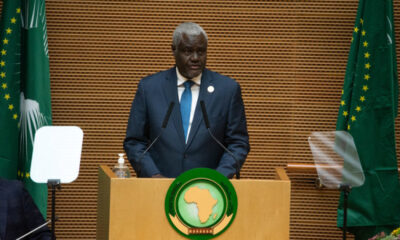
 Strictly Personal2 days ago
Strictly Personal2 days ago
